Search Results
Search
Filter results
Advanced Filters
Your search returned 883 Solutions
-
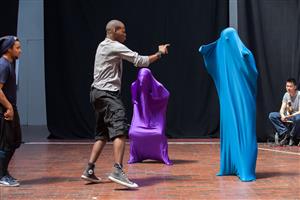
Theatre arts programme for youth with disabilities
‘Access to Theatre’ is a free inclusive arts programme designed to help young people develop artistic and communication skills. Developed in 1994 by Partners for Youth with Disabilities (PYD) in the United States, the four-week programme has about 65 participants each year.
Partners for Youth with Disabilities, Access to Theatre, United States of America -
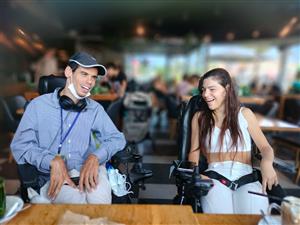
Supported housing for persons with complex disabilities
JDC Israel Unlimited’s ‘Expanded Supported Housing’ programme supports adults with severe disabilities aged 21–55 to live independently. The services include help finding an apartment, actualizing rights, budgeting, cultivating autonomy, and building independent life skills as well as ongoing support.
JDC Israel - Israel Unlimited, Expanded Supported Housing, Israel -
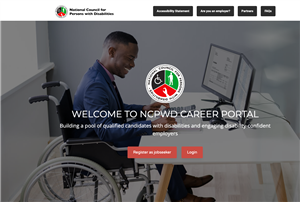
Online job-platform for persons with disabilities in a sub-Saharan country
The National Development Fund for Persons with Disabilities in Kenya, launched the NVPWD Career Portal in 2020 with support from mobile operator Safaricom. This offers personalized job recommendations and learning opportunities, and by mid-2022 had been used by more than 5,100 job seekers and 327 employers.
Safaricom PLC, NCPWD Career Portal, Kenya -
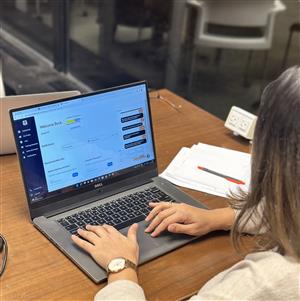
An online accessible skills-driven job platform
Jobs Ability’, launched in 2018, is a development of the US non-profit Our Ability, in cooperation with Syracuse University and Microsoft. The Artificial Intelligence-driven job matching service uses algorithms that focus on the skills and abilities of persons with disabilities, rather than on what they do not have.
Our Ability - Access to Opportunity, Jobs Ability, United States of America -
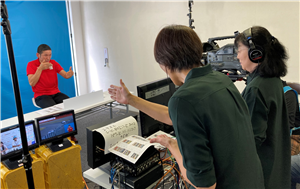
Mainstream TV station organizing a sign language academy for interpreters specializing in sports coverage
Okayama Broadcasting Co., Ltd. (OHK), Japan: Initiated a sign language program for deaf interpreters, focusing on distinctive aspects of motor sports. Supported by the Toyota Mobility Foundation, it aims at the 2025 Deaflympics in Tokyo.
OHK Sign Language Initiative, Japan -
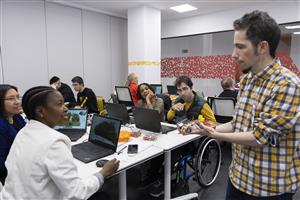
A programme to improve employability of people with disabilities in the digital sector
Fundación ONCE's Por Talento Digital: The programme enhances employability in digital and technological fields. From 2019 to 2023, trained nearly 21,000 persons with disabilties, with 887 courses to choose from.
Por Talento Digital, Spain -
Special support for deaf and hard of hearing refugees in sign language, life skills, and job application
Hospital St. John of God Linz, Austria: Supported Ukrainian refugees with hearing impairments in 2022 and 2023 with mental health and language courses. Partnered with the regional Federation of the Deaf.
Support for deaf Ukrainian refugees, Austria -
Postgraduate studies in disability law and policy
The DLPP recruits students with and without disabilities from the United States and abroad, offering them the opportunity to specialize in the field of international and domestic disability law. DLPP students may also work as interns during the summer or full-time for a semester at disability law-related offices.
Syracuse University, College of Law, Disability Law and Policy Program (DLPP), United States of America -
Finnish anti-bullying programme for schools going international
With KiVa Anti-Bullying, the University of Turku has developed a comprehensive, research-based programme to reduce the spread and negative consequences of bullying in secondary schools. The programme has been used in schools nationwide since 2009 and was also available in six other countries in 2016.
University of Turku, Finland -
Large-scale campaign to identify and enrol children with disabilities in Senegal
APPEHL follows a multilevel approach to make mainstream schools more inclusive. For children and parents, the programme includes awareness raising measures and training in dealing with impairments. For schools, learning materials are adapted and teachers are trained by teachers from the special education sector.
Humanity & Inclusion Senegal, Full Participation of Children with Disabilities in Education Programme (APPEHL), Senegal
- Page 1
- Page 2
- Page 3
- Page 4
- Page 5
- Page 6
- Page 7
- Page 8
- Page 9
- Page 10
- Page 11
- Page 12
- Page 13
- Page 14
- Page 15
- Page 16
- Page 17
- Page 18
- Page 19
- Page 20
- Page 21
- Page 22
- Page 23
- Page 24
- Page 25
- Page 26
- Page 27
- Page 28
- Page 29
- Page 30
- Page 31
- Page 32
- Page 33
- Page 34
- Page 35
- Page 36
- Page 37
- Page 38
- Page 39
- Page 40
- Page 41
- Page 42
- Page 43
- Page 44
- Page 45
- Page 46
- Page 47
- Page 48
- Page 49
- Page 50
- Page 51
- Page 52
- Page 53
- Page 54
- Page 55
- Page 56
- Page 57
- Page 58
- Page 59
- Page 60
- Page 61
- Page 62
- Page 63
- Page 64
- Page 65
- Page 66
- Page 67
- Page 68
- Page 69
- Page 70
- Page 71
- Page 72
- Page 73
- Page 74
- Page 75
- Page 76
- Page 77
- Page 78
- Page 79
- Page 80
- Page 81
- Page 82
- Page 83
- Page 84
- Page 85
- Page 86
- Page 87
- Page 88
- Page 89